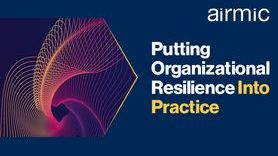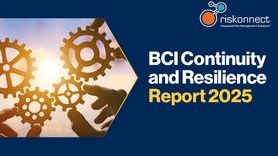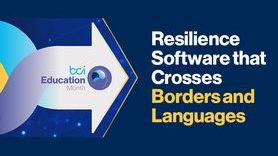Forgotten but not gone: has pandemic dropped off your risk radar?

Forgotten but not gone: has pandemic dropped off your risk radar?
According to the World Health Organization (WHO), global COVID-19 activity has increased since mid-February 2025. This rise is linked to variant NB.1.8.1, also known as Nimbus COVID in some regions, spreading mainly across countries in the Eastern Mediterranean, South-East Asia, and Western Pacific. This may result from mutations that increase the variant’s transmissibility[1]. In addition, the WHO has also agreed on a new treaty named the ‘WHO Pandemic Agreement’ to strengthen international cooperation and coordination in preventing, preparing for, and responding to future pandemics[2].
Declining priority among practitioners
Although COVID-19 was declassified as a Public Health Emergency of International Concern (PHEIC) in 2023, the new treaty and current rise in transmissions serve as clear reminders that pandemics remain a significant global threat.
However, BCI research shows organizations have lowered their concern over pandemic risk. In 2021[3] and 2022[4], non-occupational disease (pandemic) was the top impact on organizations. By 2023[5], it had fallen to fifth place. The Horizon Scan Report 2024[6] ranked it eighth among the most frequent incidents affecting organizations in the past twelve months and 15th in predicted likelihood over the next twelve months. This may be explained by the decrease in pandemic visibility and lack of media representation. In interviews[7], practitioners have pointed to global or industry-specific disruptions as crucial to maintaining the relevance of resilience, suggesting that without ongoing pressure from external forces, resilience may lose priority.
What practitioners can do
To ensure organizations are ready for the next pandemic, practitioners should aim to keep it a priority at senior level using industry reports and risk registers to prove its ongoing threat. Plans should also be updated to remain fit for purpose, incorporating lessons and challenges identified from the 2020–21 pandemic, along with guidance from Public Inquiry reports.
As large organizations such as Amazon encourage employees to return to the office, it is vital that remote working capabilities are preserved. Encouragingly, research[8] indicates the shift to remote and hybrid working models during the pandemic has become part of organizational culture, and one respondent to the Horizon Scan Report 2024 emphasised the importance of remote work for resilience:
“The COVID-19 pandemic proved that many can work efficiently from anywhere, so adapting to new technologies and approaches is not just beneficial; it’s essential for our resilience.”[9]
Corporate Emergency Programme Manager, Public Sector, Canada
In addition, practitioners could also consider regular training and exercising for all staff to keep them aware of the steps to take in the event of the next pandemic, including suppliers and supply chain links down to the bottom tiers.
The ongoing evolution of infectious diseases such as the new COVID-19 strain NB.1.8.1, coupled with increasing global connectivity, guarantees that significant health threats will continue emerge. Maintaining robust preparedness and resilience measures is essential to minimise impact and protect organizations, and people, when the next wave arrives.
[1] https://www.who.int/emergencies/disease-outbreak-news/item/2025-DON572
[2] https://www.who.int/news/item/19-05-2025-member-states-approve-who-pandemic-agreement-in-world-health-assembly-committee--paving-way-for-its-formal-adoption
[3] https://www.thebci.org/resource/bci-horizon-scan-report-2021.html
[4] https://www.thebci.org/resource/bci-horizon-scan-report-2022.html
[5] https://www.thebci.org/resource/bci-horizon-scan-report-2023.html
[6] https://www.thebci.org/resource/bci-horizon-scan-report-2024.html
[7] https://www.thebci.org/resource/bci-resilience-vision-2030-report-.html
[8] https://www.thebci.org/resource/bci-emergency---crisis-communications-report-2025.html
[9] https://www.thebci.org/resource/bci-horizon-scan-report-2024.html










































